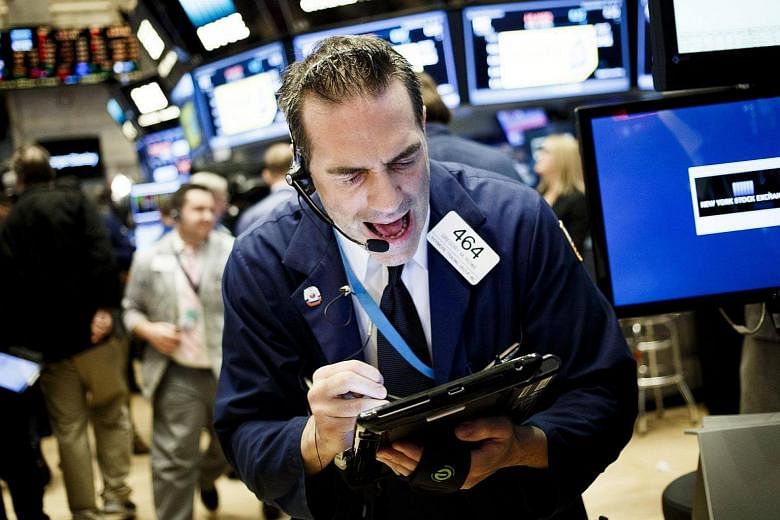LONDON (REUTERS) - Go with your gut. Traders who have stronger hunches make more money and last longer in the profession, a scientific study published on Monday (Sept 19) has found.
The findings turn on its head the Efficient Markets Hypothesis (EMH), which posits that its impossible to beat the market using human skill because prices fully reflect all available information and give man a leg up in the race between humans and algorithmic machines that have risen in prominence in trading firms.
"We find on the contrary that the physiological state of traders does have large effects on their success and survival," said John Coates co-author of the report and former Research Fellow in Neuroscience and Finance at the University of Cambridge and former Goldman Sachs and Deutsche Bank derivatives. "Humans can indeed compete against the machines."
A study of 18 male City of London "high-frequency" traders, who buy and sell financial products but hold positions for only a few seconds, was conducted in 2012 during the tail end of the euro zone debt crisis to measure interoceptive ability - a scientific term for signals orginating inside the body, such as hunger, pain and heart rate - or so-called 'gut' feelings.
The traders performed two established heartbeat detection tasks, which measure how well a person, when at rest, can feel their heart beating.
The data was compared with that of a control group of 48 non-trader males, matched with the traders on age and who performed identical tests.
The results showed that the traders scored significantly higher in their ability to detect their heart beats than the non-traders and the higher they scored the greater their trading performance and the longer they had survived in the financial markets.
What's more, the fitter the trader, the better their detection ability.
"Academic economics and finance is so focused on conscious reasoning that they completely miss the real action, which is taking place in the dialogue between brain and body," said Coates, who also wrote a book published in 2012, "The Hour Between Dog and Wolf", about the impact of biology and neurochemistry on trading.
"After years of focusing on an algorithmic trading edge, finance is now looking at how to make human traders better."
Previous scientific studies using a gambling task have shown that automatic physiological responses, or gut feelings, feedback to the brain, steering humans away from gambles with negative expected returns and towards ones with positive returns, guiding the gambling away from taking risks before even being aware of it.

